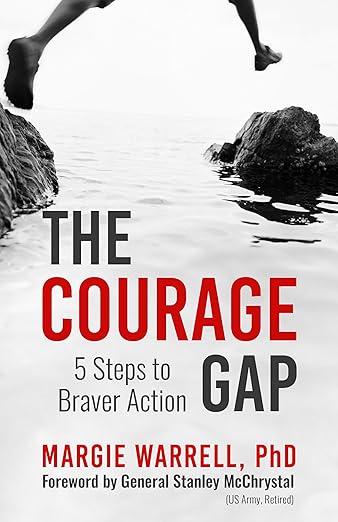In a world where failure is often viewed as something to avoid, leadership expert and keynote speaker Dr. Margie Warrell argues that learning to “fail well” is essential for growth. In her latest book, The Courage Gap: Five Steps to Braver Action, she outlines how setbacks can become powerful tools for personal and professional development. On the latest episode of CBT Now, Dr. Warrell discusses why failure should be viewed not as a defeat, but as an opportunity for growth.


First, Dr. Warrell points out that fear of failure often holds people back from taking the risks necessary for success. She explains that failing well means extracting valuable lessons from setbacks, brushing off disappointments, and using those insights to move forward smarter. Successful leaders like Bill Marriott and Richard Branson, she notes, don’t shy away from failure but instead leverage it to achieve even greater heights.
A common mistake people make is personalizing failure too much—viewing it as a reflection of their self-worth rather than an event from which to learn. On the other hand, some people ignore their missteps altogether, failing to reflect on what went wrong.
According to Dr. Warrell, the best approach lies in acknowledging mistakes with humility and using them as opportunities for self-improvement. She shares the example of a Microsoft executive who publicly admitted a misstep, taking full responsibility and ultimately building trust with his team—a leadership move that strengthened the company’s culture.
As individuals grow in their careers, Dr. Warrell explains, they often become more reluctant to admit failure due to fears of damaging their reputation. However, owning up to mistakes, she argues, enhances credibility and strengthens relationships. She likens this to a restaurant’s service recovery: when an error is handled well, customer trust often increases rather than decreases.
To shift one’s mindset around failure, Dr. Warrell suggests reflecting on past mistakes and practicing self-compassion. Forgiving oneself for failures made due to a lack of experience or knowledge, she believes, allows individuals to take bolder actions and embrace the risks necessary for greater success.
"Failure is an event, it's not a person. What is it that we can learn from failure so that we can move forward a little bit smarter than we were before?" – Dr. Margie Warrell


